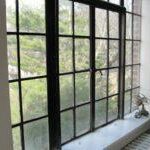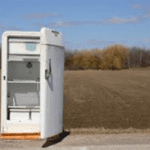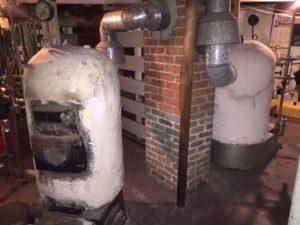When house hunters calculate their monthly costs, some overlook the cost of heating and electricity. However, it is difficult to get an accurate estimate of your future costs.
When house hunting, feel your way
 As the weather changes, house hunters have an easy way to check for places for drafts. Use your hands and feet. Notice these things:
As the weather changes, house hunters have an easy way to check for places for drafts. Use your hands and feet. Notice these things:
Drafts around window frames. Window glass insulates less than insulated walls. The glass will be cooler; that’s normal. However, in older homes there may be a hollow area that is not insulated around the window frame. This is a common place where cold air gets into the house. Check exterior door frames, too.
Cold floors. Basements help keep floors warmer. Rooms built without basements lose more heat through the floor. If you are walking around an open house in your socks, you can tell the difference. Also, check the edges of the room where the insulation may not have fully sealed the floor.
Current usage cost:
Electric and gas companies in Massachusetts will provide the current cost at a specific residence. Some listing agents will provide it. It is a mistake to rely on that figure. It can serve as a guide, but it is not an estimate. Heating costs vary wildly from year to year, based on average outdoor temperatures. Add to that the variations on personal usage.
- What if, last winter, the resident was home all day with an infant? The house was kept at a steady seventy degrees, night and day.
- What if, last winter, the resident spent eight weeks in Arizona? The house was kept at a steady fifty degrees, night and day.
Advice: If you want to use last year’s bills as a guide, ask about personal usage. How many people lived here last year? Were they in residence all year, or was it empty?
Heating cost
Heating bills can be modified when you are a tenant, but your control is limited. Once you become a homeowner, you can make effective changes to your energy efficiency. You won’t have to depend on your landlord’s idea of efficiency anymore!
The heating system:
If your heating system is moderately efficient, and it is new, leave it alone. Boilers cost $6-10,000 to replace a typical one, and $15-20,000 for a high-efficiency boiler. You will not see $10,000 savings in reduced gas or oil bills in the first ten years unless you have a huge house.
When your heating system is near the end of its life, plan to replace it before it fails. This will afford you the time to replace it with a more efficient model. In Massachusetts, you’ll need an energy audit to be qualified to get rebates from Mass Save. Expect a six-week, or so, timeline to get all parts of the replacement scheduled.
But if your heating system is an energy hog, replace it. When I say hog, I mean hog. If you are burning $500 a month in the winter, oink! Some systems that fit this category:
Very old gas or oil-fired boilers. Efficiency for typical boilers went up in the late 1980’s. Before that, some boilers were losing a third of their heat or more. They used a third more fuel, and warmed your basement…some. Boilers keep water boiling all winter, then send either forced hot water or steam up into your living space to heat it.
Asbestos-covered boilers, a/k/a “snowmen”
Electric baseboard heat. Old electric baseboard heat is expensive to run. Modern electric heat is much less expensive to run. If you have old baseboard electric heating units, you may want to change out the heating units for something more efficient. It will pay back you back in reduced energy costs in 3-6 years.
 Other efficiencies help. Windows waste a lot of heat and air conditioning. Heat also seeps out of your walls. You can check for some of these air leaks if you are house hunting in colder weather. Check Mass Save; their programs vary, but there may be loans or grants available.
Other efficiencies help. Windows waste a lot of heat and air conditioning. Heat also seeps out of your walls. You can check for some of these air leaks if you are house hunting in colder weather. Check Mass Save; their programs vary, but there may be loans or grants available.
Electric cost
Your electric bill will be the same as it was in your previous place, unless your next place has built-in items that draw a lot of power. Your electric usage for your personal items will remain consistent from one residence to the next. You’ll be using the same lamps, computers, televisions, kitchen appliances, and phone rechargers.
 Look for these large energy-sucking appliances at your next place:
Look for these large energy-sucking appliances at your next place:
- old freezers or refrigerators
- electric baseboard heating
- extensive lighting that doesn’t use energy-efficient bulbs
- oversized dehumidifier in your basement
- an electric clothes dryer, when you are used to a gas one
- inefficient central air conditioning, when you are used to ductless AC or single room units.
Any of these items will increase the cost you pay for electricity.
Are you paying too much because the house has all the whistles and bells?
A seller who has added super-efficient updates will show them off when they go to sell. Consider whether those features are ones that will help you use the house efficiently. If you won’t benefit from the expensive upgrade, you may not want to pay for it.
Here is a guest blog that showed some of the upgrades that you might see while house hunting.


Leave A Comment